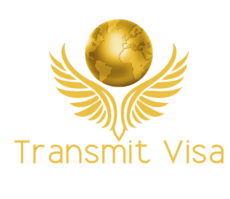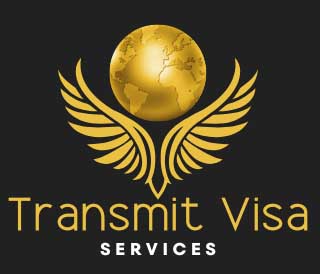Malta Immigration
Home / Visa
Malta, a small island nation located in the heart of the Mediterranean Sea, has become an increasingly popular destination for individuals looking to relocate for work, study, or a better quality of life. The country offers a combination of historical charm, modern infrastructure, and a strategic location within the European Union, making it an attractive option for immigrants.
Whether you are considering Malta for its welcoming climate, low tax rates, or European Union membership, understanding the immigration process is key to making a successful transition. In this guide, we will cover everything you need to know about Malta immigration, including the different visa types, eligibility requirements, and step-by-step instructions for applying.
Why Malta is an Attractive Destination for Immigration
Before diving into the specifics of Malta immigration, it’s essential to understand why this small Mediterranean nation has become a sought-after location for expatriates:
1. High Quality of Life
Malta offers an excellent quality of life with a high standard of healthcare, education, and social services. The cost of living is relatively affordable compared to other Western European nations, making it an attractive option for people seeking a more relaxed lifestyle without compromising on modern comforts.
2. Strategic Location in the European Union
As a member of the European Union, Malta provides immigrants with access to the EU’s single market, and the ability to live and work in any other EU country. For non-EU citizens, obtaining residence in Malta can serve as a gateway to broader EU opportunities.
3. Business Opportunities
Malta has a thriving economy, particularly in sectors such as finance, gaming, information technology, and tourism. The country offers various incentives for businesses and entrepreneurs, including favorable tax policies and an open market.
4. Cultural Heritage and Scenic Beauty
Known for its rich cultural history, stunning coastline, and Mediterranean climate, Malta offers a unique blend of modern living and historical significance. The country boasts beautiful landscapes, making it a desirable destination for those seeking both business opportunities and an exceptional lifestyle.
5. English Proficiency
As one of Malta’s official languages, English is widely spoken throughout the country. This makes it easier for expatriates to adapt to life in Malta, especially for those coming from English-speaking countries.
Visa Types for Malta Immigration
Depending on your reason for moving to Malta, there are several visa and residence options available. Below are the most common visa types:
1. Employment Visa
An employment visa is required for non-EU citizens who wish to work in Malta. If you have a job offer from a Maltese employer, this visa allows you to live and work in the country for the duration of your contract.
Eligibility Requirements for Employment Visa:
- A job offer from a licensed employer in Malta.
- A valid employment contract with clear terms of employment.
- Proof of professional qualifications, work experience, and language proficiency.
- Health insurance coverage.
- Sufficient financial means to support yourself in Malta.
2. Self-Employment Visa
Malta offers a self-employment visa for individuals who wish to establish their own business or work as freelancers. Malta’s attractive business climate and tax incentives make this visa an appealing choice for entrepreneurs and independent professionals.
Eligibility Requirements for Self-Employment Visa:
- A well-detailed business plan that demonstrates the potential for business success.
- Proof of sufficient funds to support your business venture and yourself.
- A valid passport and health insurance.
- Evidence of your professional qualifications or entrepreneurial experience.
3. Student Visa
Malta is home to several prestigious universities and language schools, and it offers a student visa for international students who wish to pursue higher education in the country. The student visa allows you to stay in Malta for the duration of your studies.
Eligibility Requirements for Student Visa:
- Proof of enrollment in a recognized educational institution in Malta.
- Proof of sufficient financial means to support yourself while studying.
- Health insurance that covers the duration of your studies.
- Accommodation arrangements in Malta.
4. Family Reunification Visa
If you are already living and working in Malta and wish to bring your spouse, children, or other dependent family members, you may apply for a family reunification visa. This visa allows your close family members to join you in Malta.
Eligibility Requirements for Family Reunification Visa:
- Proof of a valid family relationship (marriage certificate, birth certificate, etc.).
- Evidence of sufficient financial means to support your family members.
- Valid health insurance for your dependents.

Choose The Visa You Need
Choose the visa that best suits your needs. Whether it’s for travel, work, study, or immigration, our team is here to help you select and apply for the right visa with ease and confidence
Working Visas
could you clarify what specific information you're looking for about working visas? Are you interested in a particular country, type of visa, or the process in general
Study Visas
Study visas are special types of visas that allow international students to enter and remain in a country for the purpose of education.
Business Visas
A business visa is a type of visa that allows individuals to travel to another country for business-related activities such as attending meetings, conferences, negotiations
Family Visas
A family visa allows individuals to join their family members who are already living in another country. These visas are typically intended for spouses, children, parents
Diplomatic Visas
This type of visa is typically reserved for government officials, diplomats, and representatives of international organizations.
Permanent Residency Visas
A permanent residency visa allows individuals to live and work in a foreign country on a long-term basis. Permanent residency (PR) provides immigrants
Tourist Visas
A tourist visa is a type of visa issued by a country to allow foreign nationals to visit for leisure, sightseeing, or tourism purposes.
Transit Visas
A transit visa is a type of visa issued to travelers who are passing through a country on their way to another destination.
Refugee & Asylum Visas
Refugee and asylum visas are designed to provide protection to individuals fleeing persecution, conflict, or serious harm in their home countries
Satisfied Client
Countries
Happy Students
Universities
Visa Requirements
Start by researching the visa requirements for the country you plan to visit. This information can be found on the official government website or embassy website of the country. Different countries may have different requirements, such as whether the application must be made online or in person.
- Fast Visa Processing
- 24 Hours Online Response
- Provide The Best Guidance
- Legal Immigration Success

Fill Out The Form Provided
Could you clarify which form you're talking about? Are you asking for guidance on a visa application form, a government document, or something else
Submit Documents
Double-check all required documents to ensure they are accurate and up to date. For example, make sure your passport is valid for the required period.
Make a Payment
To make a payment, the process can vary depending on what you're paying for (e.g., visa fees, application fees, or service charges)
Fill Out The Form Provided
Is it for a visa, application, or some other purpose? If you provide more context, I can guide you step-by-step on how to fill it out
How We Work
Common Visa Denial Reasons
There are several reasons why your visa application might be denied, including:
- Incomplete or inaccurate application form
- Insufficient financial proof
- Failure to provide requested documentation
- Lack of clear intent to return to your home country after your stay
- Prior immigration violations or overstays
- Failure to meet specific health or security requirements
If your visa application is denied, you may be able to appeal the decision or reapply after addressing the issues highlighted in the denial.
Benefits
An immigration visa allows individuals to enter a country for purposes like work, study, or permanent residence. Different countries offer various types of immigration visas, each with its requirements and procedures. It’s essential to know your visa type, requirements, and eligibility before starting the process.
Start by researching the type of visa that best suits your situation. Understand the requirements, eligibility criteria, and restrictions for each visa option. You can usually find this information on the official government website of the destination country.
- ✅ Effortless Process: Simplify your journey to living and working abroad with streamlined visa applications.
- ✅ Secure Future: Gain peace of mind with immigration options that open up a world of new opportunities.
- ✅ Global Mobility: Enjoy unparalleled access to diverse countries and cultures with visa solutions that make international relocation hassle-free.
- ✅ Personalized Assistance: Receive expert guidance and support to navigate the complex visa requirements, ensuring success.
- ✅ Tailored Solutions: Find visa options that best fit your unique needs, enhancing your ability to achieve long-term goals abroad.
- ✅ Career Growth: Open the door to professional advancement by accessing international job markets with visa support.
- ✅ Family Reunification: Create a better future by bringing your loved ones along through family-friendly visa programs.
- ✅ Permanent Residency Pathways: Secure a pathway to permanent residency in desirable countries, enhancing stability for you and your family.
- ✅ Quick and Reliable: Save time with fast processing and expert management of your visa application, ensuring a smooth transition.
Contact Us if You Are Looking for a Work Visa
Need a consultation? Call us today +971-4-575 37 94 or email us: support@transmitvisaservices.com

Take a step forward towards a brighter future with our expert immigration services, designed to guide you through every stage of your immigration journey. Whether you’re seeking a work visa, permanent residency, or citizenship, our team of experienced consultants
Quick Links
Information
Call Us:
+971-4-575 37 94
Email:
support@transmitvisaservices.com
Visit Us:
office # 811, Regal tower, Business bay, Dubai, UAE
